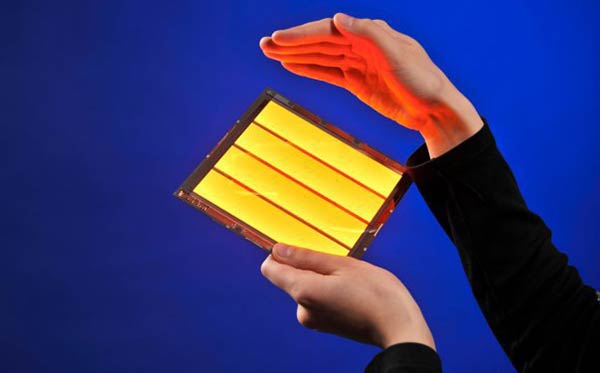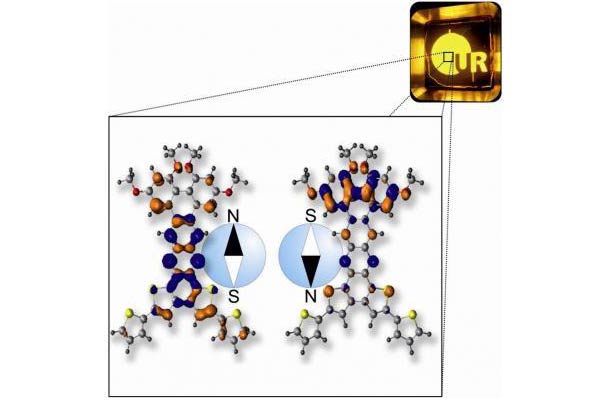New research coming from the University of Bonn and Regensburg hopes to help manufacturers make cheaper and more efficient OLED displays. Current OLED displays only convert about a quarter of the energy supplied to them as light and their efficiency can be increased only by the addition of noble metals like platinum and iridium, which are very costly.
In a conventional OLED display there is a lot of energy loss as the display generates heat instead of light. The University of Bonn press release explains “this loss of energy occurs frequently: three quarters of all charges carry the same spin. Much like the needle of a compass, they point in the same direction but cannot touch each other, effectively lowering the yield of useful light.” While noble metals can be utilised to re-orient the magnetic particles quickly so they do generate light instead of heat after all, such rare metals are obviously an expensive addition to the manufacturing costs.

OLED displays produce a lot of unwanted heat
Dr. John Lupton, Professor of Physics at the University of Regensburg, said the new OLED display making technique raises the efficiency using a different mechanism. “Charges can flip the orientation of their spins spontaneously – you just have to wait for long enough for this to occur,” he explained. But traditional OLED molecules give up their energy as heat quicker than the new ones developed at the University of Bonn.
“It appears that, in our OLEDs, the molecules can store electrical energy for significantly longer than is conventionally assumed,” said Chemistry Professor Sigurd Höger of the University of Bonn. “Our molecules can therefore exploit the spontaneous jumps in spin orientation in order to generate light,” he added.

These more efficient OLEDs without the use of rare metals should provide more energy efficient displays for our smart phones, tablet PCs and TVs. Saving energy is particularly important in our portable gadgets which use a large proportion of their battery stamina powering the screen. The promise of cheaper OLED displays is also welcome.













